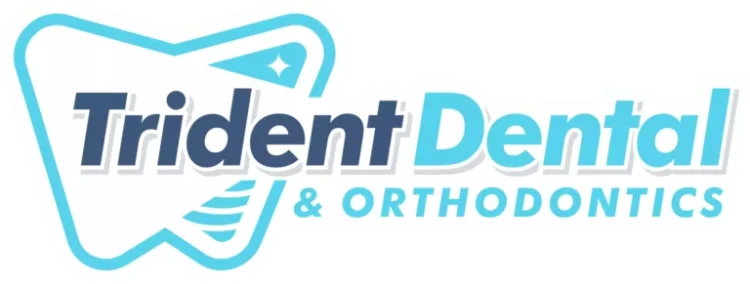Tongue scraping is a somewhat controversial subject in the dental world, as many people have misconceptions about its use and efficacy. When all is said and done, though, you have nothing to lose by doing it and — quite possibly — a lot to gain.
Here at Trident Dental in Houston, Texas, our skilled providers offer a wide range of dental services, and we encourage our patients to take an active role in maintaining good oral hygiene. That includes brushing and flossing, of course, and maybe tongue scraping as well.
What is tongue scraping?
Brushing at least twice a day and flossing at least once a day is necessary for your teeth, but bacteria, dead cells, and debris can build up on the soft tissue of your tongue as well. A tongue scraper is a small, slightly curved plastic or metal tool that you pass over your tongue to remove that buildup.
One common misconception about tongue scraping is that it’s a cure for halitosis, more commonly called bad breath. While scraping your tongue can remove some or all of the bacteria responsible for causing bad breath, as soon as you eat or drink something, they build up again. The best you can hope for is temporary relief, but the more vigilant you are about using the scraper, the more effective it can be long-term. If you use it after every meal, you may be able to get ahead of the odor-producing process.
A second misconception is that brushing your tongue with a toothbrush is just as effective as scraping. Results from a 2004 study suggest that’s not the case. Researchers reported that tongue scrapers removed 30% more volatile sulfur compounds (sulfur smells like rotten eggs) than using a soft-bristled toothbrush.
What are the benefits of tongue scraping?
In addition to removing bacterial plaque, tongue scraping offers other benefits:
Improves your sense of taste
Some research suggests that using a tongue scraper twice a day improves your sense of taste. A clean tongue, minus the bacterial plaque, allows your taste buds to better distinguish between the different types of taste — salty, sweet, bitter, sour, spicy, and umami (meatiness).
Improves your tongue’s appearance
When debris builds up on your tongue, it can cause it to take on a white or yellowish appearance. By scraping away the debris, you can help prevent the colored buildup from developing or returning.
Removes harmful bacteria
In a 2005 study, researchers discovered that using a tongue scraper twice a day for seven days reduced the presence of two types of bacteria in the mouth: Mutans streptococci and various Lactobacilli. These types are directly linked to both bad breath and dental decay.
Improves your overall health
Removing bacteria is a way to prevent plaque and tartar buildup, cavities, gum disease, and other oral health conditions. And good oral health is a sign of overall healthiness, so if you maintain your teeth and tongue, you’re in a good place.
How should I go about scraping my tongue?
Tongue scraping is easy and takes only a couple of minutes. Just follow these steps:
- Stick out your tongue — you may want to do this in front of a mirror
- Put the curved end of the scraper at the back of your tongue
- Touch the scraper to your tongue, and slowly pull it forward — never move it backward
- After each swipe, use a cloth to remove any debris from the scraper
- Repeat until you’ve scraped your entire tongue
- Wash your scraper with soap and warm water, dry it off, and store it in a clean, dry area
So, is tongue scraping something you should be doing? Well, even if it doesn’t eliminate halitosis, as some people believe, we believe it can help you maintain good oral health, and that’s incredibly important. And regardless of its overall effectiveness, it certainly can do no harm.
To find out more about tongue scraping and our wide range of professional dental services, call Trident Dental at 281-975-4942 or request an appointment online.

